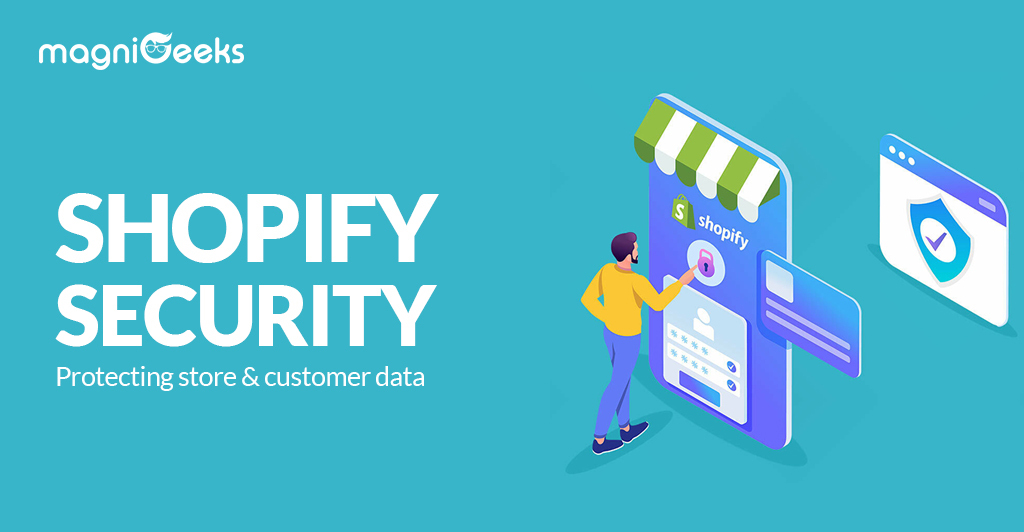In the bustling world of e-commerce, where transactions flow seamlessly and customer trust is paramount, safeguarding your Shopify store against security threats is not just advisable—it's imperative. As the backbone of your online business, Shopify hosts a treasure trove of sensitive information, from customer data to financial transactions. In this blog, we delve into the realm of Shopify security, exploring best practices to fortify your store and protect both your business and your customers.
Understanding Shopify Security
At its core, Shopify security encompasses a multifaceted approach to protecting your store's infrastructure, data, and transactions from unauthorized access, breaches, and malicious attacks. From securing login credentials to encrypting sensitive information, every aspect of your Shopify store warrants meticulous attention to detail.
Implementing Robust Authentication Measures
The journey to a secure Shopify store begins with authentication. Ensure that strong, unique passwords are in place for all user accounts associated with your store, including administrators, staff, and third-party apps. Consider implementing two-factor authentication (2FA) to add an extra layer of security, requiring users to verify their identity through a secondary method, such as a code sent to their mobile device.
Keeping Your Shopify Platform Updated
Regular updates are not just about adding new features; they're also crucial for patching security vulnerabilities and fortifying your store against emerging threats. Stay vigilant for Shopify platform updates and promptly install them to ensure that your store remains resilient to potential exploits and vulnerabilities.
Secure Hosting and Data Encryption
Selecting a reputable hosting provider is paramount for Shopify security. Choose a provider that offers robust security features, including SSL/TLS encryption, DDoS protection, and regular security audits. Encrypt all sensitive data transmitted between your store and customers using SSL/TLS certificates, ensuring that communication remains confidential and secure.
Protecting Customer Data
Customer trust is the lifeblood of e-commerce, and safeguarding their personal information is non-negotiable. Implement stringent data protection measures to safeguard customer data, including names, addresses, payment details, and purchase history. Store sensitive information securely, utilizing encryption and access controls to restrict unauthorized access.
Payment Security and Compliance
As a merchant, ensuring the security of payment transactions is paramount. Shopify offers robust payment gateways that comply with Payment Card Industry Data Security Standard (PCI DSS) requirements, safeguarding credit card data and preventing unauthorized access. Choose PCI-compliant payment gateways and adhere to best practices for payment security to instill confidence in your customers and protect against financial fraud.
Third-Party App Vigilance
While third-party apps can enhance the functionality of your Shopify store, they also introduce potential security risks. Before installing any apps, thoroughly vet their security protocols, reviews, and permissions. Limit access permissions to only essential functionalities, and regularly audit installed apps to identify and remove any potential security vulnerabilities.
Regular Security Audits and Monitoring
Proactive monitoring and regular security audits are essential components of a robust Shopify security strategy. Implement automated monitoring tools to track suspicious activity, monitor access logs, and flag potential security incidents in real-time. Conduct regular security audits to identify and mitigate vulnerabilities before they can be exploited by malicious actors.
Educating Your Team and Customers
Security is a collective responsibility that extends beyond the confines of your Shopify store. Educate your team about security best practices, including password hygiene, phishing awareness, and response protocols for security incidents. Similarly, educate your customers about online security risks, encourage them to create strong passwords, and advise them to remain vigilant for phishing attempts and fraudulent activities.
Conclusion
In the dynamic landscape of e-commerce, Shopify security is not a one-time endeavor but an ongoing commitment to safeguarding your business and protecting your customers. By implementing robust authentication measures, securing hosting infrastructure, encrypting sensitive data, and adhering to compliance standards, you can fortify your Shopify store against evolving security threats.
Embrace security as a foundational pillar of your e-commerce empire, instilling confidence in your customers and fostering trust in your brand. With vigilance, diligence, and a proactive approach to security, you can navigate the digital landscape with confidence, knowing that your Shopify store stands fortified against adversarial forces.




